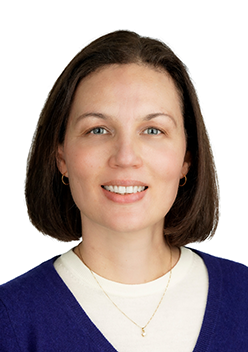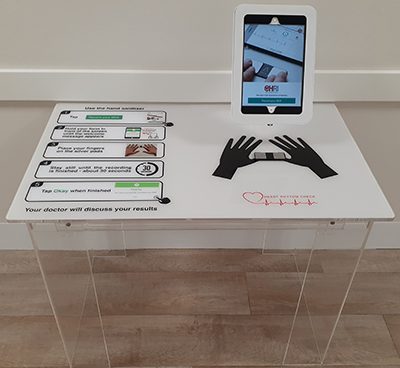
Can you tell us a bit about yourself?
My pathway to general practice was a pretty interesting one, and I definitely had a lot of adventures along the way.
I was involved in a lot of sport, and my first degree was in nutrition and dietetics. As fate would have it, I ended up with a pretty bad case of chickenpox and enrolled in a research elective. This introduced me to the world of research, which I found both fascinating and challenging.
I went on to complete my PhD, which examined socioeconomic inequalities in diet, in 2002. I then left Australia for four years and did a postdoctoral fellowship in the Netherlands. After returning to Australia I was looking for another challenge – and a deviation from the cut-throat world of full-time academic research.
Fortunately, I was accepted into the medical program at the University of Sydney. After 10 years of working at universities, I was a student again, and it seemed like a great indulgence. I thoroughly enjoyed medical school and all areas of medicine, but my interests always lay in general practice and preventive medicine.
I had my child during medical school – she actually arrived during my obstetrics rotation – which was a great learning curve. I joined general practice training after my intern–residency years and have mainly completed my rotations in rural areas. I completed an academic term in my general practice training, which was a great chance to pick up research again after completing my medical training and apply it to the general practice environment.
I have recently Fellowed and work half my time in a GP clinic in Bathurst [New South Wales] and half my time in general practice academic research. This is a nice mix of clinical work and applied research; I really get to use all the skills and knowledge I have acquired along the way.
General practice has been a great career choice for me; there is a wide scope of practice and areas of interest you can pursue.
Why did you apply for a general practice research grant?
Applying for a grant provided the opportunity for me to develop and test a practical solution in general practice to improve patient care. It enables me to spend some of my working week focusing specifically on my research project, as well as balancing this with normal clinical GP work.
Having funding helps you to prioritise your time on the research, which helps to develop and test interventions out in general practices. Having the support of funding helps to develop an intervention that’s high-quality and more likely to be implemented in day-to-day general practice, and therefore more likely to improve patient care.
The process of applying for the grant was relatively straightforward. The key is in identifying an issue in general practice that needs to be addressed or improved, and scoping that within the timeframe of funding. You need to make a detailed plan about how you’re going to conduct your research and evaluate your intervention.
The most consuming part of the process is crystallising your thoughts around the research questions and how you’d like to address them. Once you have a clear issue in your head, you need to think of a research/evaluation plan.
I have found it helpful to share my ideas and research plan with other GP colleagues and researchers, to get their input and reflections on the research questions and methods.
Sometimes you have to think quite creatively about some research areas, and this can take some time. But once you have your ideas and plan clear in your head, writing the funding application is quite straightforward and structured. However, it always takes a little longer than you envisage.
Can you tell us about your research – the problem you sought to address, the process for addressing this issue and the outcome?
I’m particularly passionate about screening for AF [atrial fibrillation]. Unfortunately, my father passed away from a stroke related to AF – he had no symptoms of the condition.
I think GPs are in a great position to screen our older patients for AF; more than 75% of older Australians will see a GP at least once a year. However, as GPs we work in a time-pressured environment, funding models encourage shorter consultation times, and our patients are getting increasingly complex. So it’s no surprise that only 10% of patients aged over 65 get screened for AF by pulse palpation by their GP in Australia, despite it only taking a few seconds and requiring no equipment.
GPs report time pressures in consultations as the main limiting factor for screening for AF. I’d like to increase the screening rate for AF and improve detection of asymptomatic patients. A stroke is such a devastating way to identify AF, and they cause a lot of suffering among patients and their families.

Screening station
My project focuses on the development and evaluation of AF self-screening station, where that screening moment can be taken out of the consultation time and can be completed by patients in the waiting room, with the results integrating with their electronic medical record and available for GP review before the patient enters the consultation room.
I’ve developed a self-screening station and have successfully integrated this with Best Practice software. I’ve implemented the screening stations in three practices to date, with over 750 patients undertaking self-screening and have identified around 40 with possible AF.
Could you provide some words of encouragement to GPs considering applying for a research grant? What did you get out of it? And what are you currently working on?
GPs are perfectly placed to make real changes to patient care and health outcomes. We all come across things in our day-to-day clinical work that could be done better, or could work more efficiently. Applying for funding helps to realise that change.
What is your passion or bug-bear? Have you got a great intervention in your practice that you would like to upscale? Chances are that a great research project lies within any of these ideas.
Talk to your colleagues and connect with other researchers about your ideas, and things will crystallise. Make a move on your great ideas by applying for funding – the status quo will only change or be challenged if you make a move on it.
Dr Katrina Giskes